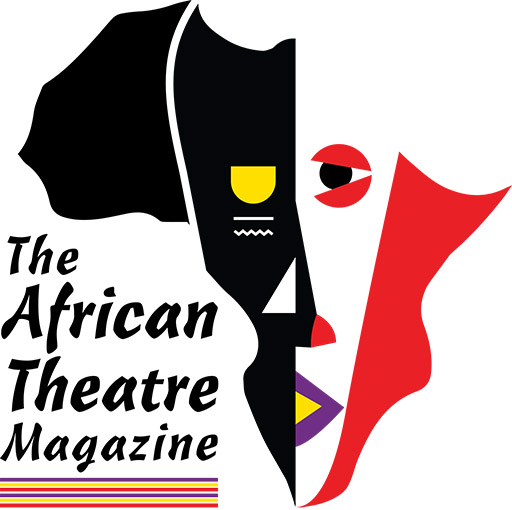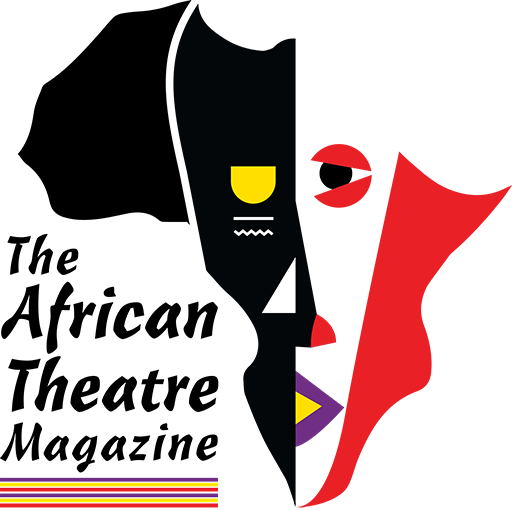Leonard Okware has been making theatre companies at the national theatre in Uganda look good for the past 39 years.
Theatre lighting design has a major influence on setting the tone and mood of any theatre production. It is what tells day from night, indoors from outdoors and clearly, it is the only thing that sets the ball rolling, that’s before any member of the cast says a word.
Brilliant lighting is what transports the audience to the world the writers and directors conjure up.
In every project, there is always a lighting designer responsible for creating the lighting that will transform the project from ordinary to vibrant. The designer emphasizes the significance of lighting by improving visibility. However, this goes beyond ensuring that the audience can see the performance; it involves using light to capture the audience’s attention in specific directions. Through lighting, the designer can influence various elements such as the audience’s experience, the atmosphere, the focal point, and more.
In Uganda however, most theatre productions do not have space for a light designer, not that they don’t appreciate storytelling with light but mainly because the focus of most theatre makers is the story and the acting.
See also: Project Ivelo: A Village, Theatre and Fun
Most of the time, it’s up to the theatre lights department to make the show look good. At Kampala’s National Theatre in Uganda that man is Okware Leonard Epupi.
He has been making theatre companies look good for the past 39 years.
Okware started working at the National Theatre in 1984, at only 22, he says they were some of the best years of Ugandan theatre.
“Namasagali College productions were one of the most sought after shows at the time, of course there were other companies such as the Ups, Mulago Theatre Kings, Black Pearls, there were many companies both registered and unregistered,” he says.
Leonard Okware’s Early days
Then, he says that all these groups wanted to have shows at the National Theatre that it was so hard to get space. At the time, Leonard Ondur, a stage manager, would go and check out rehearsals of different companies to see what they had.
See also: Billy Langa and Mahlatsi Mokgonyana on Pushing the Boundaries of the Craft
“There were a lot of procedures involved in getting a space at the National Theatre,” he says.
Much as he seems to mix up the first play he did lights on, he remembers it was a production by Alex Mukulu. At the time, it is documented that Uganda was in a turmoil after a number of coups.
“At the time, we did very many day time shows and they were strict, shows did not go beyond two and a half hours,” he says adding that it was only when things started normalising that they started having evening shows. But again, the duration remained two hours and a half.
The context of evening at the time was 5pm, by that time, many people were already in their homes. But to keep the theatre running, the first shows started as early as 11am.
Yet still, there was tension.
“There was a time we had a show by Peterson Mutebi, it started at 11am, we had an interval. It was a must to have an interval. During an interval, when the curtain came down, they took over Kampala. The show ended at the interval,” he says.

That is the day Tito Lutwa Okello took over from Milton Obote, he says during the break, the theatre secretary announced that the show had ended everyone should go home.
“Once Okello came, there was no order, there was confusion and people feared so there was not much happening around the theatre, I don’t remember any show that happened during his six month reign,” he says.
See also: Namulondo Theatre: The Throne of ‘80s Theatre in Uganda
The situation did not change so much even when President Yoweri Museveni came to power in 1986, people still stayed away from theatre until some time.
There are many moments that Okware remembers during his 39 year old journey, one of them was being on the lights when Museveni came to see Alex Mukulu’s 30 Years of Bananas.
Lighting for Alex Mukulu
Okware says he has always enjoyed working with Mukulu because he is fearless and usually went where most people do not want to go – politics.
30 Years of Bananas is seen through the eyes of its protagonist, Kaleekezi, a refugee from Rwanda who takes a satirical view of Uganda and what she has celebrated, suffered and lost over the three decades of her independence.
“During the speeches after the play, one person asked Mukulu why the busts of the former presidents he had had on stage did not have ears. Mukulu said, “Do you think they hear, why do you want them to have ears?”,” he says, adding that when Museveni was giving his speech, he empasised that unlike the busts, he has ears and listens.
But that was just one of the two shows he has handled when the president is in the audience. In 2003, he was still on the lights when Hollywood Ugandan actor Ntare Guma Mbaho Mwine brought his theatre production Biro to Uganda.
Biro is a one man show that naturally depends so much on both light and sound to give the audience context.
For this, he says lighting was simpler because Ntare knew exactly what he wanted.
“Usually in theatre you give someone what he/she wants, not what you want. For Biro, he did very many rehearsals and we mapped out the entire stage, so I used a few spots where I knew he would be to follow him when he moved,”he says.
See also: In Tonderai Munyevu’s Mugabe, My Dad & Me, the Personal Becomes the Political
Challenges of today
Today, a lot has changed with theatre performers, many easily go off script during a production, while others could move aimlessly contrary to what may have been rehearsed and mapped out with the technical team.
Leonard Okware says for shows such as these one should have general lighting and spots around to back up just in case a performer goes off script.

But of course, he acknowledges that most Ugandan production groups want to have light production during the show.
“They usually want you to light the show when they did not even give you a script,” he says.
But he adds that there are a lot of light offers, the easiest being showing a performer the boundaries of their stage.
“The most important one though is presenting citations, for instance we use red a lot for transition or danger.”
Okware says that the National Theatre has over the years tried to digitise the lighting department but it is yet to work to its full potential, mainly because the performers are not yet ready.
“We would like to have shows where lighting is preprogrammed to automatically transition but our performers are not disciplined. Preprogrammed lighting works when everything is happening at the time it is meant to happen. But these performers of ours, the other day, we had to be starting a play and had to delay because the lead was somewhere stuck in traffic,” he says.
See also: Robert Serumaga: The Pantheon of Uganda’s Theatre in the ‘70s
In his view, much as many improvements are going on, the performers are yet to pull their weight.
Theatre’s predicament
However, he says that theatre today has mainly suffered because its glory days were mainly based on individuals. When most of these people died, their companies died natural deaths.
“I had a production here last month and things are bloody expensive. It is hard to do it without financial help,” he says.
He also acknowledges a fact that most shows today are playing it safe with the themes and subjects they attempt to address.
“At the moment it’s the poets that are trying to say things close to what Alex was saying, the difference is that they are poems. There is fear in many playwrights, they don’t want to say what they think. You know, theatre is the mirror of life, what you say is not what people want but what you want to say. But artists fear, they don’t go full blast,” he says.
See also: Dr. Julisa Rowe: On Drama, Ministry and Giving Back to the Next Generation
Okware also says that Uganda seems to have very many activities that consume people’s time such as weddings, parties, concerts and technology.
“All these keep people away from theatre,” he says.
Okware retired from the theatre last year when he clocked 60, however, he was called back to train people to do what he has been doing for the past 39 years.








Discussion about this post